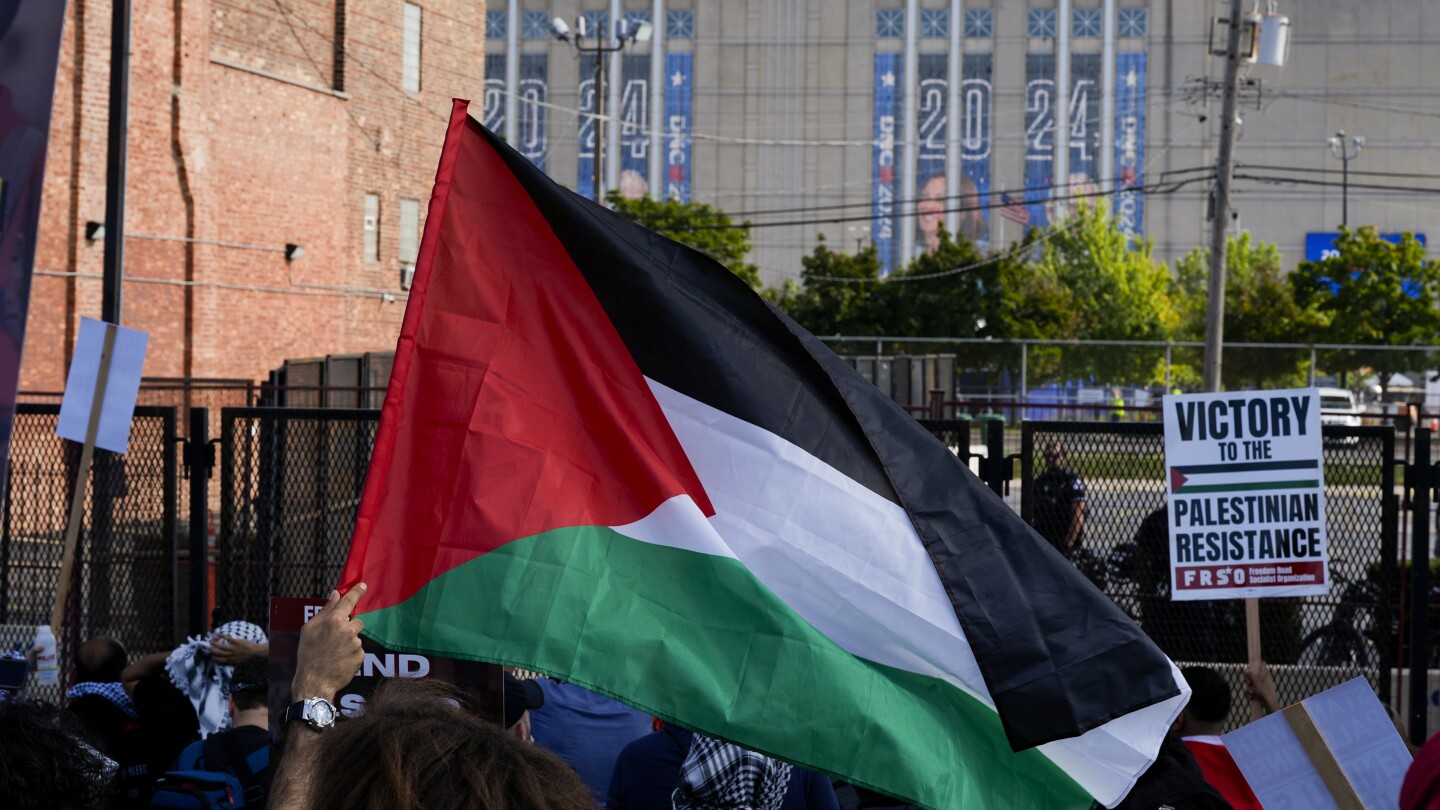CHICAGO (AP) — The Democratic Party has been riven for months by the war in Gaza, giving rise to a protest movement that threatened President Joe Biden’s electoral coalition.
But with Biden gone from the race and Vice President Kamala Harris now leading the party, there were some indicators at the Democratic National Convention on Monday that Harris is taking more assertive steps to ease that tension.
In what organizers called a first, party activists were given space at the convention to hold a forum to discuss the plight of people in Gaza, who have been under Israeli bombardment since Hamas’ Oct. 7 attack and its taking of hostages, as well as to share deeply personal — and often heartrending stories — about family members lost in the conflict.
Though their core demands — a cease-fire and withholding U.S. support for Israel’s prosecution of the war — remain unmet, the decision to allow activists to hold a forum amounted to the offering of an olive branch by Harris. And it’s one that many doubted Biden would have extended if he were still the nominee.
James Zogby, a panelist and the founder of the Arab American Institute, acknowledged there was still discontent over the Democratic Party’s handling of the war in Gaza. But he said the forum was nonetheless a first.
“It is not the prize. The prize is a change in policy,” Zogby said. “But what is historic here is we are having an officially sanctioned panel to talk about it.”
Over the course of an hour, panelists shared horrifying stories of lives shattered, children maimed and families erased.
Dr. Tanya Haj-Hassan, an American doctor who has treated patients in Gaza during the war, relayed the story of a young boy whose family was killed and who told her he no longer wanted to live because everybody he loved “is now in heaven.”
The forum was the product of secret negotiations between Harris’ campaign and members of the so-called “Uncommitted” movement — a group that encouraged Democratic voters to deny Biden their support and vote “uncommitted” during primary contests earlier this year to send a message.
Top Democrats had spent weeks meeting with “uncommitted” voters and their allies — including a previously unreported sit-down between Harris and the mayor of Dearborn, Michigan — in an effort to respond to criticism in key swing states like Michigan, which has a significant Arab American population.
Layla Elabed, a Palestinian American from Dearborn, who is a founder of the “uncommitted” movement and sister of U.S. Rep. Rashida Tlaib of Michigan, said Harris’ candidacy offered a glimmer of hope and called the panel discussion a “small victory.”
“Biden was a liability to the Democratic Party because of his unpopular and immoral (Gaza) policy. With Vice President Harris at the top of the ticket, the window of opportunity to move the Democratic Party is slightly better,” said Elabed.
“On the other hand, President Biden” will still be in office until January, Elabed said, and “we can’t wait for a transfer of power … before we have a policy shift.”
Elabed, who met with Harris, said she felt the vice president’s “empathy and compassion was genuine and authentic,” but added that’s not enough.
“We need more than sympathy and empathy” because “Palestinian children can’t eat words,” Elabed said.

